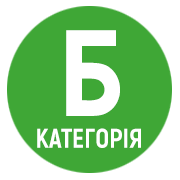UKRAINIAN AND ENGLISH ON THE INTERNET: THE ROLE OF SOCIAL MEDIA IN LANGUAGE DEVELOPMENT
DOI:
https://doi.org/10.32689/maup.philol.2025.1.12Keywords:
social media, Internet resources, educational process, media literacy, communication channelsAbstract
The study examines the role of social media in the process of learning English and international communication.It is emphasized that in extreme conditions, social media allow users to establish contacts, communicate with each other, share news, photos, audio and video content, experiences, useful links, and express their own opinions in both Ukrainian and English. This definitely expands the scope of information exchange and develops the language context. YouTube, Telegram, and Facebook remain the most stable services. Social media have become the most active networks in the context of special policies in response to the escalation of the war in Ukraine. Additional opportunities were created to protect the personal data of Ukrainians, content monitoring was intensified, the team of Ukrainian language speakers was expanded, and the distribution of political advertising was banned.International communication and educational resources are provided through a chronological feed, simple interface, active transition to the state communication network, multifunctional chatbots, speed of communication, etc. Multidirectional international communication in social media contributes to the development of Ukraine’s quality and popularity, and the use of well-known tools to represent it helps to recognize and consolidate the potential of Ukrainians on the world stage. The more Ukrainians express national issues through social media, the more representatives of other countries may become interested in Ukrainian culture, the political situation in Ukraine, and Ukraine’s status on the political and diplomatic maps of the world.Such steps, in turn, will help to spread information and consolidate Ukrainians as a nation on these maps. This is one of the keys to mutual attention and respect between representatives of different countries. It can also be noted that active international interaction and the exchange of social communication elements between different states contributes to increasing trust and support among the world’s population. It is also argued that language transformations facilitate user interaction, making communication faster and more accessible. On the other hand.Traditional language norms are changing in social media. Users must maintain a balance between innovation and adherence to classical language norms, especially in formal and professional contexts. Therefore, analyzing the impact of digital platforms in Ukrainian and English communication is an important factor in the formation of new language systems.
References
Бориско Н. Ф. Теоретичні основи створення навчально-методичних комплексів для мовної міжкультурної підготовки вчителів іноземних мов (на матеріалі інтенсивного навчання німецької мови) : дис.... докт. педагог. наук: 13.00.02 / Київський державний лінгвістичний університет. Київ, 2000. 508 с.
Білоус О. Україна в умовах глобалізації. Часопис картографії. 2009. № 14. С. 60–63.
Кузнецова Т. Ф. Використання мультимедійних презентацій та відеоматеріалів на уроках у початкових класах. Таврійський вісник освіти. 2013. № 1. С. 176–181.
Кавєріна А. С. Соціальні медіа в Україні: основні напрями досліджень. Вісник національного технічного університету України «Київський політехнічний інститут». Політологія. Соціологія. Право : зб. наук. пр. Київ: ІВЦ «Полі- техніка». 2014. № 2 (22). С. 69–73.
Остапчук С. С., Закомолдіна А. Є. Роль соціальних мереж у сучасному медіапросторі. Матеріали Х конгресу «Авіація в XXI столітті» – «Безпека в авіації та космічні технології». Київ: Національний авіаційний університет, 2022. С. 148–150.
Рудик М. Вплив соціальних медіа на форму- вання громадської думки. Вісник Львівського університету. Серія Журналістика. 2020. Вип. 48. С. 198–206.
Тишкова О. Соціальні мережі як виклик сучасності в освітньому середовищі. Вісник Інституту розвитку дитини. Серія: Філософія, педагогіка, психологія. 2014. Вип. 34. С. 63–72.
Чорна В. Д., Алєксєєнко І. В. Інформаційні права людини в Україні: проблематика правового визначення. Соціальна і цифрова трансформація: теоретичні та практичні проблеми правового регулювання : матеріали Всеукр. наук-практ. конф. (м. Київ, 2 грудня 2021 р.). Київ-Одеса : Фенікс, 2021. С. 210–214.
Bergmann J., Sams A. Flipped learning: Gate- way to student engagement. International Society for Technology in Education, 2014. 169 p.
Kawate S., Patil K. Analysis of foul language usage in social media text conversation. International Journal of Social Media and Interactive Learning Environments. 2017. № 5 (3). P. 227–251.






